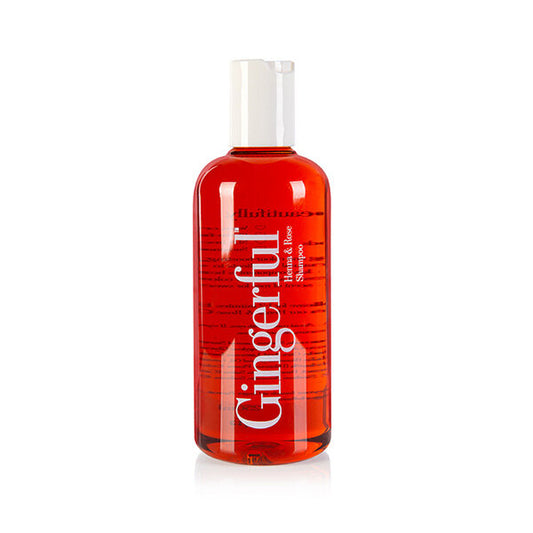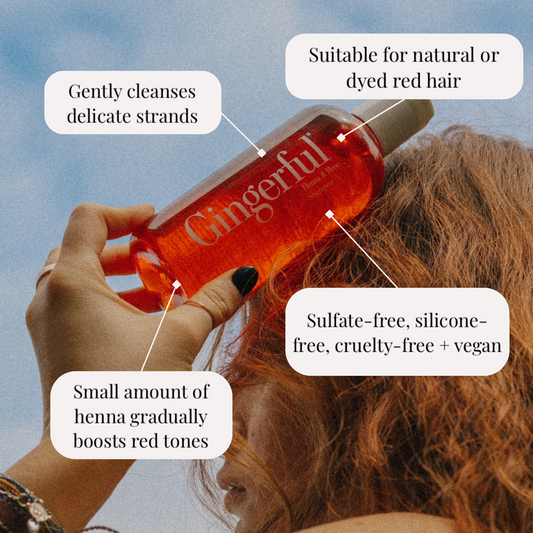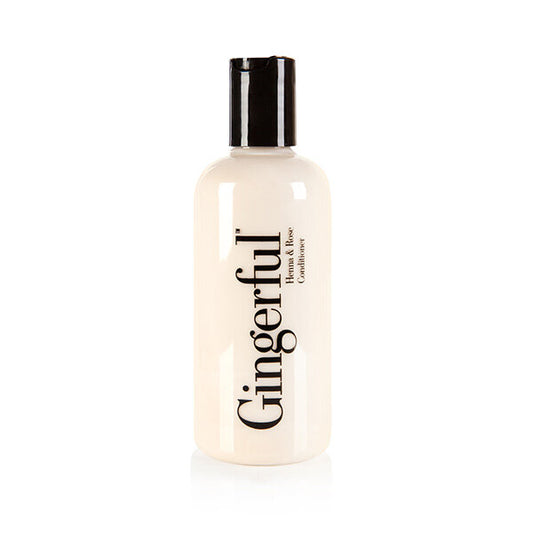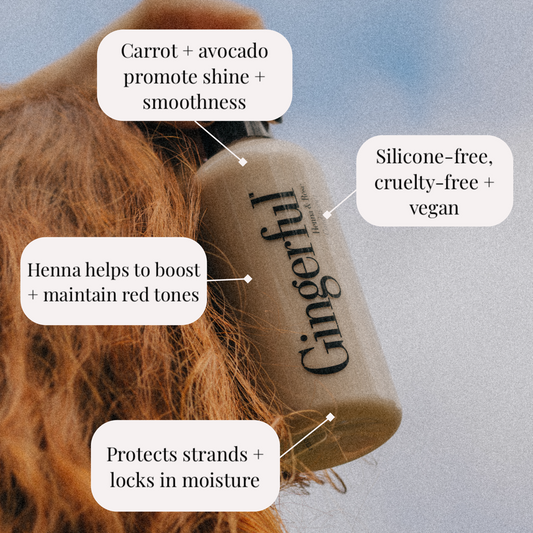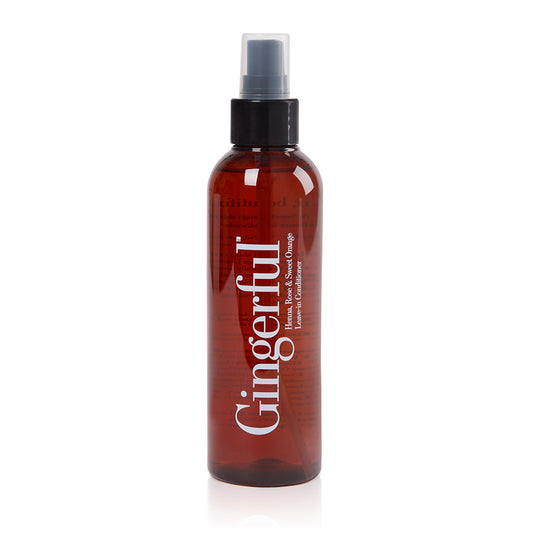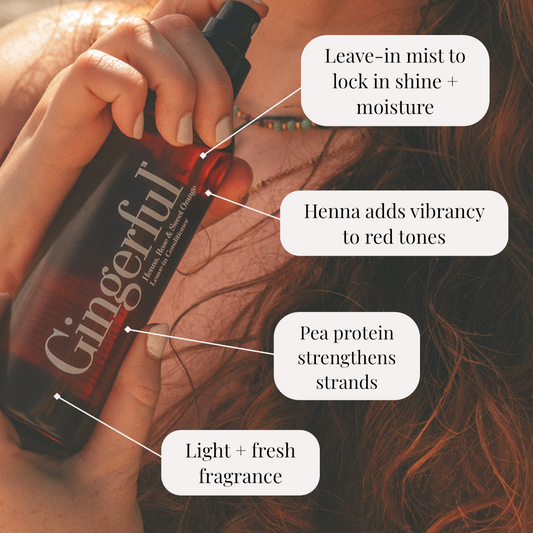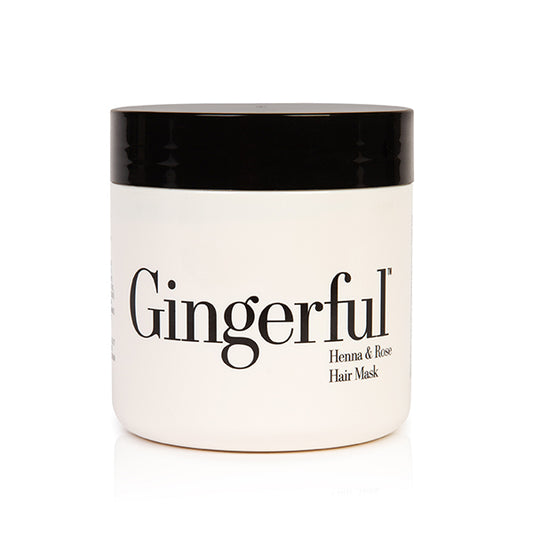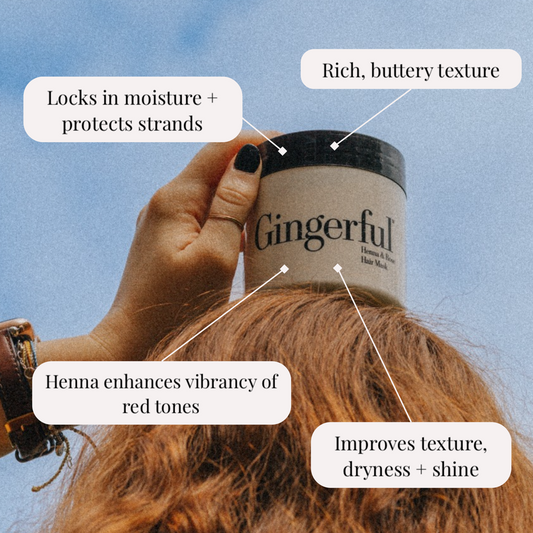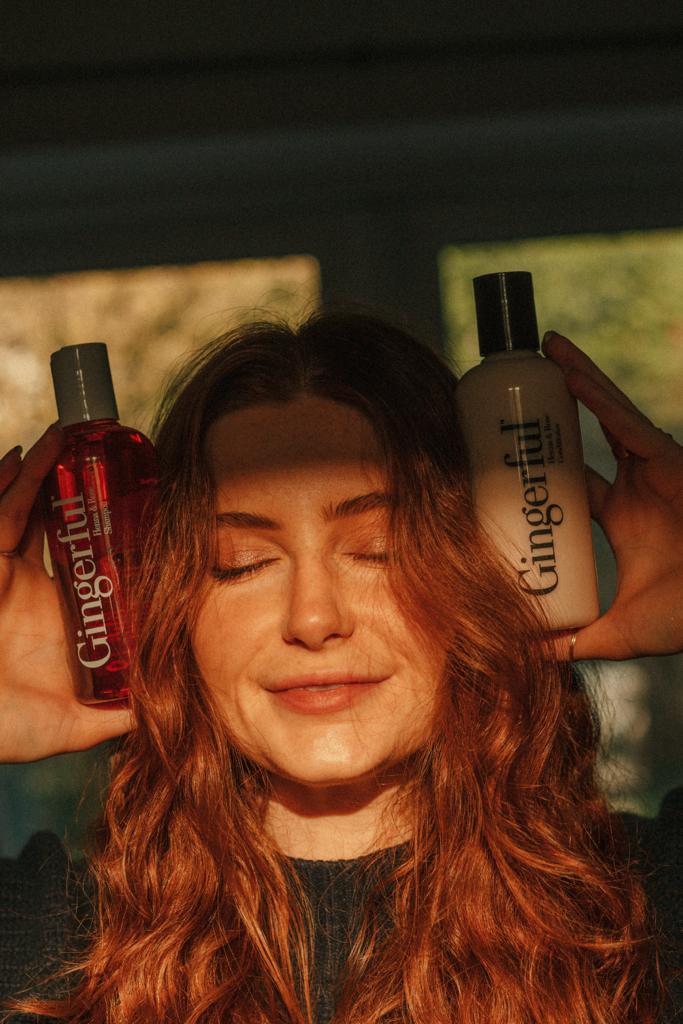In the haircare world, one type of ingredient that often sparks debate is silicones. These synthetic compounds are commonly found in a wide range of hair products, from shampoos and conditioners to serums and styling products. But are silicones good or bad for your red hair? We look at the pros and cons of silicones in haircare.
THE PROS OF SILICONES
Smoothing and detangling
Silicones contain intensive conditioning properties that help smooth the hair cuticle and reduce friction between strands. This results in easier detangling, reduced breakage, and enhanced manageability, especially for those with thick, coarse, or tangled hair.
Frizz control
Silicones are excellent at forming a protective barrier around the hair shaft of each individual strand, sealing in moisture and blocking out humidity. This helps prevent frizz and flyaways, leaving the hair looking sleek, smooth, and polished, even in humid or damp conditions.
Heat protection
Some types of silicones, such as dimethicone, contain a certain amount of heat-resistant properties that essentially provide a shield against the damaging effects of heat styling tools. By forming a barrier on the hair surface, silicones help to minimise heat damage and keep the hair looking healthy and vibrant.
Gives a layer of shine
Silicones have light-reflective properties that give hair a glossy appearance. By smoothing the hair cuticle, silicones enhance light reflection.
THE CONS OF SILICONES
Now you've read the pros of silicones, they sound great, right? But let's look at the cons.
Build-up and weigh-down
Over time, silicones can accumulate on the hair shaft, forming a layer of residue that tends to weigh down the hair and diminish its volume, bounce, and ultimately, shine. This build-up consequently traps dirt, impurities, and leftover styling product residue, leading to dullness and decreased effectiveness of subsequent hair treatments.
Blocks moisture
While silicones can seal in moisture initially, they also create a barrier that prevents moisture from penetrating the hair shaft moisturising your strands. This can lead to dehydration and dryness over time, especially for individuals with porous or damaged hair that requires deep hydration.
Potential sensitivity
Some people may experience scalp irritation or sensitivity to certain types of silicones, particularly those with sensitive skin or allergies.
WHY CHOOSE SILICONE-FREE HAIRCARE?
As you can see, while silicones have their advantages, they may not be the best choice for everyone, especially those looking to avoid product buildup, maintain hair health and shine, or address specific concerns such as sensitivity or dryness.
And particularly for redheads, who tend to have much more delicate, drier strands that require more moisture and a gentler approach. By using silicone-free products, like Gingerful, you can achieve beautifully smooth, soft and shiny red hair, but without the potential drawbacks associated with silicones.
Ultimately, the choice is yours, but by understanding the pros and cons of silicones in haircare, you can make informed decisions that support your red hair goals.
A redhead's guide to going sulfate-free and silicone-free
Red hair is different from other shades in many ways, not just in colour

